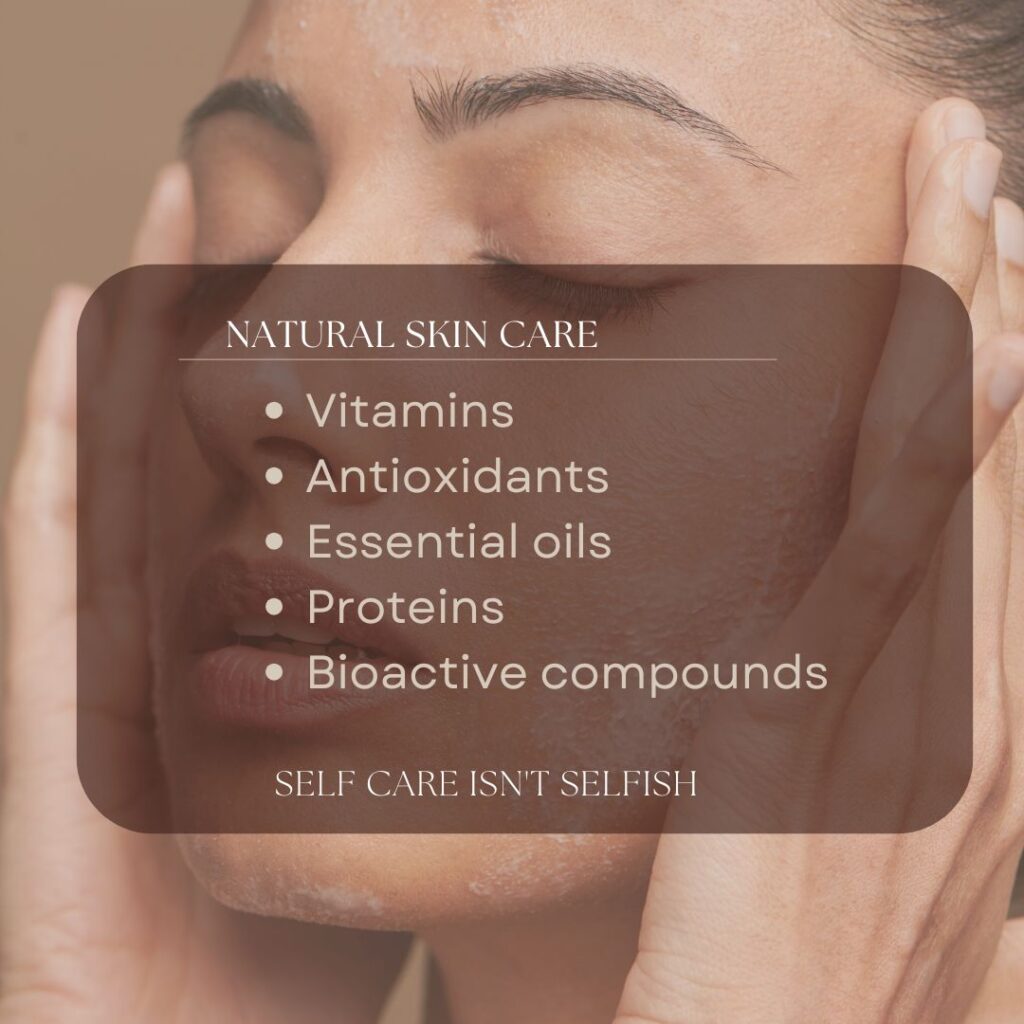Skin Care with Natural Ingredients

What is Natural Skin Care?
Natural skin care focuses on using products derived from natural ingredients like plants, minerals, and animal by-products. The term “natural”, however, lacks a standardized definition, which can create confusion for consumers. Some companies label their products as natural even if they include synthetic components.
Dana Murray, a licensed aesthetician, highlights: “There’s a lot of debate in the industry on what’s considered ‘natural’ and what’s not. Some natural ingredients can cause irritation, while others are inconsistent in effectiveness.”
Key Takeaway:
Always research and patch-test new products to ensure compatibility with your skin type.
Why Choose Natural Skin Care?
Natural skin care offers a host of benefits due to its reliance on botanical ingredients rich in:
Vitamins
Antioxidants
Essential oils
Proteins
Bioactive compounds
These components are gentle yet effective for various skin types:
Oily Skin: Helps control sebum production without harsh treatments.
Dry Skin: Provides hydration and soothes irritation.
Combination Skin: Balances oiliness and dryness.
Acne-Prone Skin: Reduces redness and prevents clogged pores.
Sensitive Skin: Avoids harsh chemicals, promoting a healthy skin barrier.
Darker Skin Tones: Supports overall skin health and reduces hyperpigmentation. Consult a dermatologist for specific concerns like keloids or vitiligo.
Decoding Product Labels
Understanding what’s in your product is crucial. Here’s a breakdown:
Naturally Occurring: Ingredients like raw honey, used in their pure form.
Nature-Identical: Lab-created but chemically identical to natural ingredients, e.g., sorbic acid.
Synthetic: Entirely lab-made ingredients, like parabens.
Other common terms:
Organic: Certified organic ingredients.
Green: Focuses on eco-friendly practices.
Clean: Non-toxic formulations (unregulated).
Vegan: Free from animal-derived ingredients.
Cruelty-Free: Not tested on animals.
Fair-Trade: Ethically sourced ingredients.
Crafting a Skin Care Routine for Your 30s and Beyond
As you age, collagen and elastin production decreases. A well-planned routine can maintain skin health.
Morning Routine:
Cleanse: Use a gentle, natural cleanser.
Exfoliate (1-3 times per week): Remove dead skin cells.
Tone: Opt for natural toners like witch hazel or rose water.
Moisturize: Look for products with jojoba oil or ceramides.
Protect: Use a mineral-based sunscreen with SPF 30+.
Evening Routine:
Repeat Morning Steps (skip SPF).
Apply Eye Cream: Hydrate the delicate under-eye area.
Night Moisturizer: Choose products with hyaluronic acid or shea butter for overnight repair.
Additional Steps:
Detox Masks: Use charcoal or green tea-based masks weekly.
Bakuchiol Serum: A natural alternative to retinol for anti-aging.
DIY Natural Skin Care Recipes
Clarifying Oatmeal Mask
Ingredients: 3 tbsp ground oats, 1/4 tsp apple cider vinegar, 1/4 tbsp lemon juice, 1/2 tbsp brown sugar.
Directions: Mix into a paste, apply for 10 minutes, rinse with warm water.
Tea Leaves Face Toner
Ingredients: 1 tsp peppermint tea leaves, 4 tsp white tea leaves, 1/2 cup boiled distilled water, 2 drops lavender oil.
Directions: Steep tea, combine with aloe vera gel, store in a spray bottle, and refrigerate.
Sugar Face Scrub
Ingredients: 1/2 cup brown sugar, 3 tbsp honey, 2 tbsp olive oil.
Directions: Mix well, apply to skin in gentle circular motions, leave for 10 minutes, rinse off.
Safety Tips for Natural Products
Natural doesn’t always mean safe. Keep these points in mind:
Patch Test: Always test new products on a small area of skin.
Check Expiry Dates: Natural products often have shorter shelf lives.
Be Cautious: Discard products that change in smell, texture, or color.
Certain natural ingredients may interact with medications or cause allergic reactions. Consult a dermatologist if in doubt.
Final Thoughts
Switching to a natural skin care routine can be rewarding for your skin and the environment. Take time to research, experiment, and find products that work best for you. Natural skin care is not just a trend—it’s a commitment to wellness and sustainability.